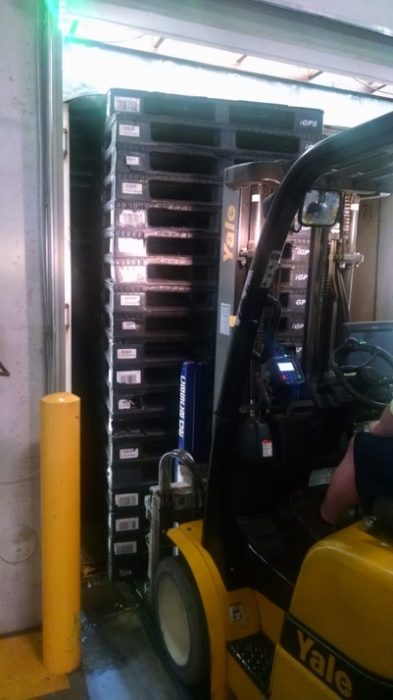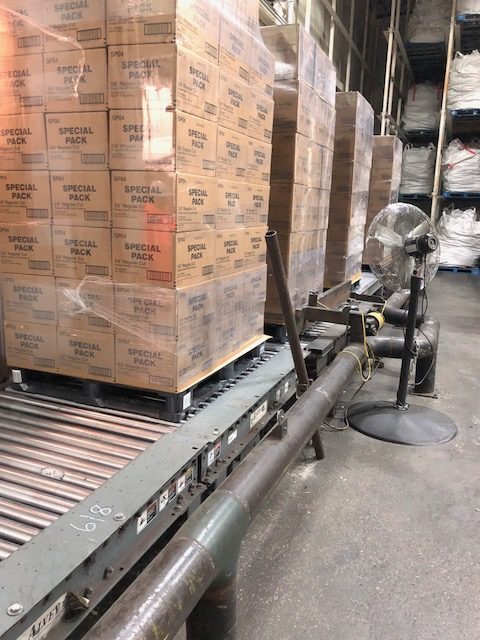The world dangles in a web of very long threads–these are the various supply chains that keep food in our refrigerators, deliver the refrigerators to the stores in the first place, and keep the power plants that allow the refrigerators to run stocked with fuel. If any thread in this interconnected web comes loose, the consequences range from financial loss to outright disaster. Businesses and everyday life depend on the smooth operation of the supply chain. Yet, for most people and many business owners, logistics management is mysterious art practiced only by logisticians.
The truth is that logistics management is both an art and a science and forms the basis of everything we do in the modern world. Good tips on logistics management offer more than ideas for meeting a shipping deadline; they provide sound advice that can be applied to all aspects of business to save money, improve efficiency, and outperform the competition–and that’s what you’ll find in this post.
4 Logistic Management Tips to Keep Operations Running Smoothly

The fundamental goal of logistics management is to keep things running smoothly without missed deadlines or interruptions that cost you money. Keeping your supply chain moving without major hiccups calls for a top-down approach that sets clear goals and provides employees a range of options to solve any problems that might arise. Of course, there’s no way to anticipate and provide a procedure to solve every possible issue a worker might face. But by setting clear goals, expectations, and channels for communication, employees who encounter problems will have a solid grasp of how they should ideally resolve the issue.
- Set Goals in Line With Your Business Plan
Does your company pride itself on being the lowest-cost provider available, or do you emphasize the speed with which you fulfill your orders? If your company’s business model depends on providing a product at very low cost, then resolving supply chain delays, interruptions, or errors may take time–and that’s okay. However, if your company emphasizes the speed with which it supplies products or materials, then fulfilling the order quickly regardless of cost is vital to maintaining your position in the market. Making decisions in a manner consistent with your business plan will provide a framework for your employees to resolve logistics problems quickly and in a consistent manner.
- Ensure Inventories Are Up to Date
Make sure that employees update your inventory lists to reflect when ingredients, components, or parts were used. Perhaps the best way to do this is to implement procedures for doing so and make certain that employees actually follow through on them. Scanning or data capture procedures can aid in keeping inventory databases up-to-date in near real-time. It is even possible to automate ordering when stocks of certain materials are below a certain point. To prevent supply chain interruptions, it’s vital to put procedures in place that ensure your inventory lists reflect the reality of what is available.
- Communicate with Vendors and Customers
A major part of preventing delays in the supply chain is ensuring that you have the materials you need and that those materials are up to standards. In order to prevent delays in your ability to manufacture your product and ship it, you must maintain communication with your vendors in order to give both positive and negative feedback. It’s also a good idea to take the initiative to communicate with your end customers in order to find out if you could stand to improve in any specific areas when meeting their orders.
- Keep Internal Communications Open
In logistics, you can expect the unexpected even when you think you have taken care of every aspect under your control. Eventually, vendors will fall short, retailers will reject loads, and power outages will slow operations. Dealing with these disruptions as quickly as possible requires your employees to be able to reach out to other locations for materials or ensure that an order is fulfilled by another facility. Just as it’s important to communicate with customers and suppliers, it’s vital that your organization is able to clearly communicate internally. Encourage your employees to communicate with you and with each other so that when issues arise they know who to contact in order to resolve the problem.
The best tip for logistics management is communication. If all parties are freely communicating, then supply chains–and stages within a supply chain–can be mutually supporting. Communication is what allows products to be shifted to different lanes as needed and is what keeps products flowing to customers. It is also what allows for the implementation of logistics techniques that improve efficiency and reduce costs.
Cost-Cutting Tips for Logistics Management
 Reducing costs in logistics management requires your employees to focus on goals and to improve the efficiency of how you fulfill those goals. Improving efficiency often takes significant time and focused effort–there are no shortcuts. Nevertheless, there are a few tips on logistics management that suggest the best areas to focus on when you’re looking to cut costs by increasing efficiency:
Reducing costs in logistics management requires your employees to focus on goals and to improve the efficiency of how you fulfill those goals. Improving efficiency often takes significant time and focused effort–there are no shortcuts. Nevertheless, there are a few tips on logistics management that suggest the best areas to focus on when you’re looking to cut costs by increasing efficiency:
- Automation Can Reduce Variables
The last few decades have seen extraordinary developments in computers and robotics. Many everyday record-keeping and repetitive operational tasks can be automated. While industrial automation can reduce labor costs, it also has a serious advantage when it comes to removing the variations that can occur when products undergo manual operations. Automating data capture and routine operations like packing can eliminate variations and in doing so can do away with related delays and extra costs in the supply chain.
- Core Business Operations Come First
It is pretty common for businesses to accumulate logistics facilities, personnel, and operations that aren’t part of their core business. Often these are ancillary operations that enable a company’s core business model but don’t offer a return on investment. Finding ways to eliminate or reduce these extraneous operations can improve supply chain efficiency and significantly lower your company’s Total Cost of Business (TCOB).
- Partnering Up Is More Efficient
The ancillary operations mentioned above may not directly make the company a profit but are usually vital to doing so. In this case, a third party may be able to provide the same service at a comparable or lower cost, freeing companies from the necessity of maintaining facilities and staff to serve these parallel operations. Partnering with service providers can save companies a significant amount of money, not to mention time and administrative hassles.
Ultimately, the best cost tips on logistics management come down to focusing on your company’s core money-making operations and dropping any operation that divides your attention.
Pallet pooling services provide cost-effective pallet management that can contribute to cost-effective logistics management.
One major area where companies waste time and money is pallet management. Shipping pallets are necessary for companies to get their products to market; however, they’re also a cost that most companies never recoup. Shipping platforms are generally bought outright in bulk, then stored in a manufacturing facility or warehouse where they take up operational space. After use, the administrative hassle of arranging for the pallets’ return is such that companies seldom bother with it. Instead, they treat their pallets as disposable and simply buy new ones as needed.
A pallet pooling provider manages a company’s pallets for them in order to provide pallets only as they are needed, freeing companies from having to keep large numbers of idle pallets in storage. They also manage the return and reuse of pallets from retailers and the maintenance of damaged pallets. Pallet pooling services provide cost-effective pallet management that can contribute to cost-effective logistics management–as long as you remember that not all pallets and pallet management companies are created equal.
The iGPS pooled plastic pallet is lighter, stronger, and more sanitary than a pooled wood block pallet and pairs perfectly with automated systems to reduce variability in your supply chain, improve efficiency, and reduce costs. To find out more, give our team a call at 1-800-884-0225, email a specialist at switch@igps.net, or visit our contact page.



